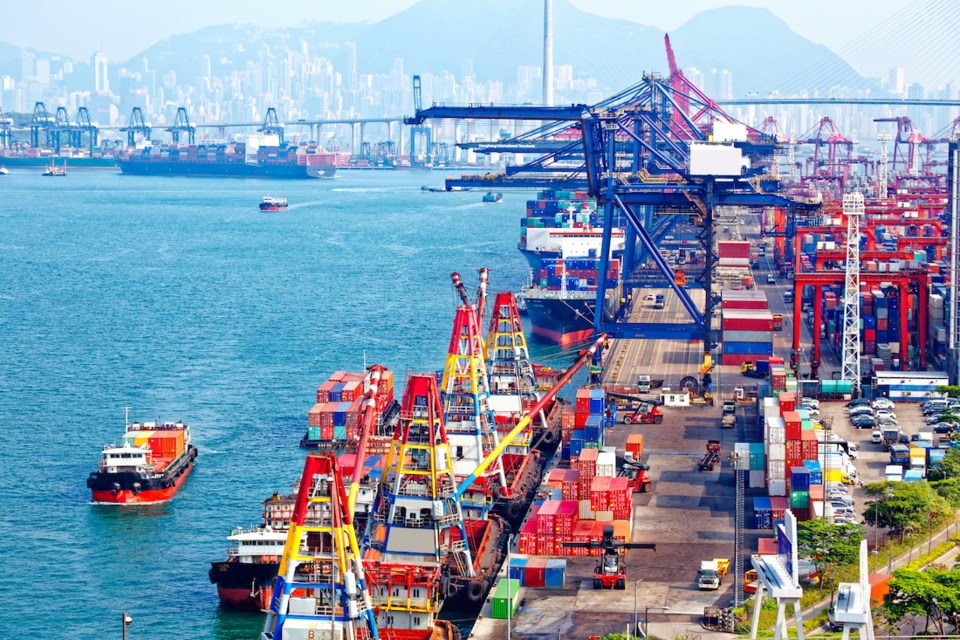In the post-COVID era, B.C. saw its trade policy shift substantially, not only towards diversification but also using social/environmental sustainability as a key selling point.
New Jobs, Economic Development and Innovation Minister Brenda Bailey, one of the top cabinet members taking over the trade portfolio under B.C. Premier David Eby, said both of those principles will continue to drive the province as it engages global partners.
“We consider our sustainable and fair economy – and our commitment to that – as a competitive advantage here in British Columbia,” Bailey said in an extensive interview with BIV. “... This is very, very important work, and it will continue to be the spearhead of our trade strategy.”
Bailey referred to the work done by predecessor Ravi Kahlon – who has since moved on to the housing portfolio – in his trade mission last May to five European markets (Great Britain, Netherlands, Ireland, Germany and Finland). During the trip, Kahlon said that B.C.’s newly minted environmental and social governance (ESG) standards was on the forefront of the province’s sell to trade partners to engage economically.
Bailey noted that the trip netted the province a number of MOUs in industries like agri-tech and mass timber, demonstrating that B.C. - by leading with showing others the ESG standards here – can create sustainable trade opportunities that bring more added value to provincial industries.
Given the global economic headwinds – inflation, supply-chain bottlenecks and geopolitical uncertainties – Bailey said having a robust trade strategy based on ESG and pursuing value-added trade to B.C.’s portfolio will be vital to the province’s ability to ride out the storm.
“I would say this portfolio is crucial, and there are so many inputs we can provide that can help our B.C. businesses compete internationally and be successful,” she said. “This ministry has funded opportunities for businesses to create digital strategies, online marketplaces – where people were provided with access to training, much of it was very successful.
“We have the opportunity to absolutely hit above our weight, particularly in tech but in other areas as well. We see our work at the ministry as champions of B.C. innovation, and that’s what we will continue to do.”
B.C.-origin exports globally rose in 2021 to $53.9 billion (from $39.6 billion in 2020 and $31.5 billion a decade ago), with increases to most major markets like the United States, China, Japan, South Korea and Southeast Asia.
Interestingly, despite Canada’s political difficulties with Beijing in recent years, B.C.’s trade with China spiked to $8.9 billion in 2021, up from $5.7 billion one year prior. And despite calls for diversification, the overall market share of B.C. exports to its top two partners – the United States and China – both rose in 2021 (55% to 56% for the U.S., 15% to 17% for mainland China).
Bailey, however, said more efforts will soon be underway to further diversification away from B.C.’s - and Canada’s – top two trading partners in favour of growing new markets.
“That’s all part of the work that’s going on right now to our trade diversification strategy, which is part of our Stronger B.C. strategy,” she said. “Our relationships right now with China, the U.S. and others are very important to us. We have very strong people-to-people ties with China, so it’s a very important partner.
“The diversification strategy will focus on ensuring that we are not as reliant, however, on one or two markets where we have broad relationships. It will provide us the kind of stability we want for our supply chains.”
Bailey did not specify which markets will be among the new diversification focal points. In recent years, Ottawa has spoken about deepening ties with burgeoning economies like Southeast Asia and India, as well as maximizing the benefits of free trade deals with the European Union.
One key document for the province will be Canada’s new Indo-91ԭ�� Strategy, a federal policy directive that indicates a mixing of economic and geopolitical interests in engaging partners on multi-faceted engagement. Bailey indicated that B.C. will both work with Ottawa to find province-specific areas of opportunity, as well as strike out on its own, when it comes to exploring new markets in Asia.
“It’s not one of the other,” she said. “This is a big file, and the feds establish the trading policy broadly. We work within that framework, so we will be working very closely with the feds to ensure that B.C. interests are well represented, but we will also be working directly with different trade and market opportunities.”
Bailey also noted B.C. will also focus on its participation in the 91ԭ�� Northwest Economic Region (PNWER) in engaging neighbouring U.S. states like Washington, Oregon, California, Idaho and Alaska.



